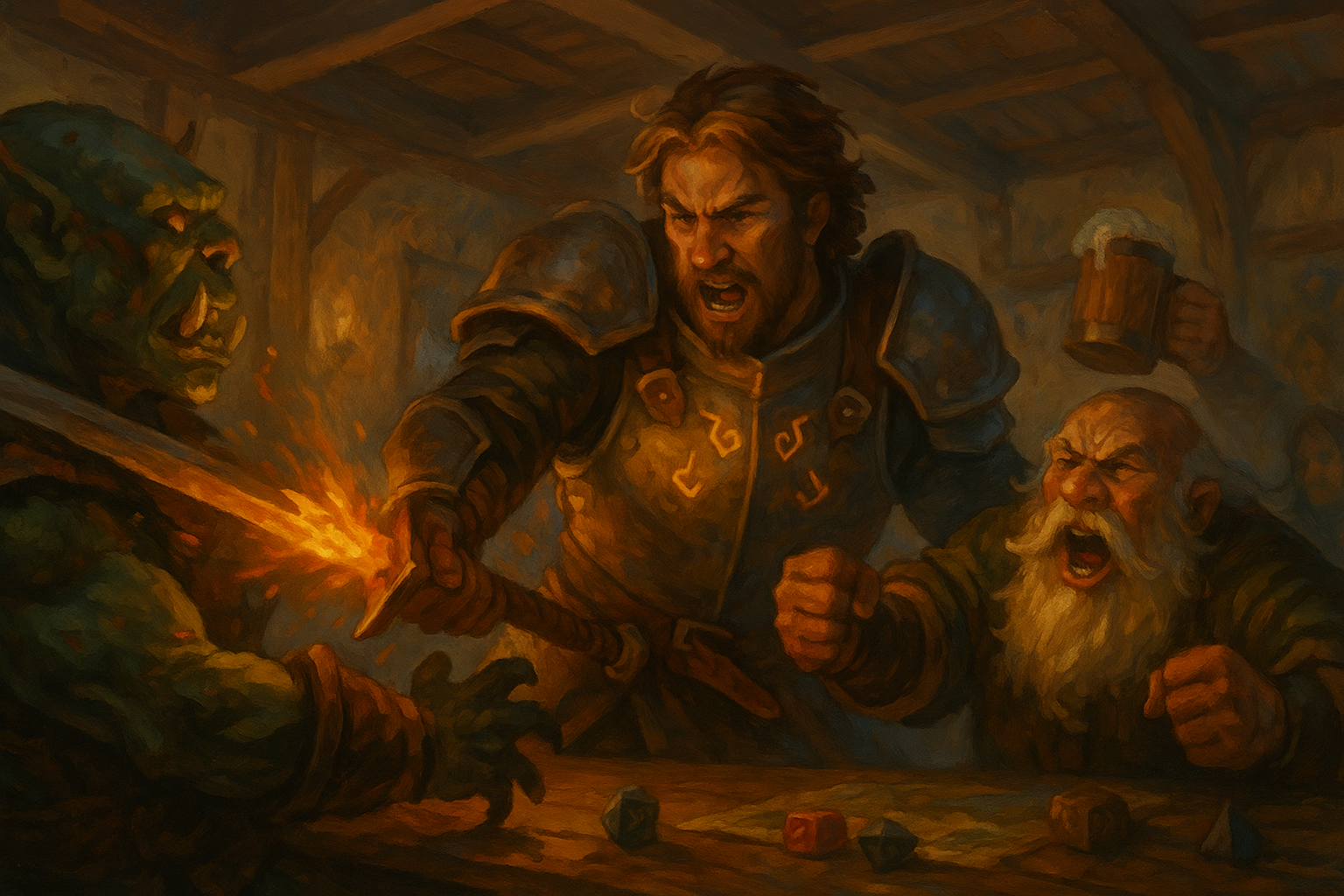When Treasure Turns Players into Enemies
By Trickin’s cursed coin purse, I’ve seen more campaigns split over a pile of gold than by any villain’s blade. One moment, you’re all laughin’ and slayin’ goblins. The next, yer squabblin’ over who gets the magic boots like drunk uncles fightin’ over the last tankard. Greed’s a quiet poison — it don’t just take the loot, it takes the trust. And without trust, lad, you don’t have a party. You’ve got strangers playin’ pretend.
It’s never a comfortable thing to talk about, aye. But leave it alone, and you’ll be sittin’ in an empty tavern wonderin’ where everyone went.
Why Treasure Splits a Table
Loot’s not just shiny — it’s power. Who gets the blade that cuts true, or the armor that soaks a dragon’s breath? In the wrong hands, that choice feels like favoritism. It’s worse when the same folk keep walkin’ away with the good stuff, leavin’ the rest gnawin’ on scraps. Before long, folk stop cheerin’ each other’s victories. They start keepin’ score.
Want to see how greed rots a game from the inside? Take a walk through Loot Don’t Mean Leadership, Ya Gold-Grabbin’ Pebble Counter — it’s a blunt pint of truth for any would-be hoarder.
Two Ways to Stop the Gold from Going Rotten
1. Make the Loot Serve the Story
Instead of tossin’ treasure like crumbs to a pack o’ dogs, weave it into the tale so it lands where it belongs. If the fighter’s clan lost an heirloom blade, make that the next reward. If the bard’s been wooing the queen, maybe she gifts them a token that boosts their charm. This way, the party sees the reward as earned in-story — not just handed to someone because they rolled high or grabbed quick.
If you need inspiration for loot worth workin’ into the story, you can’t go wrong with Ashmaul, the Emberwake Hammer or the Whisperfang, the Moon-Touched Dagger — both are rich in lore and beg for a good narrative hook.
2. Reward the Party as a Whole
Not every prize has to be a single shiny object. Some of the best rewards benefit everyone — like a map to a hidden safehouse, or a wagon that makes travel easier for the whole crew. When the win feels shared, so does the satisfaction. It builds the habit of thinkin’ as a team, not just a pack o’ treasure hunters.
For examples of how shared benefits keep a party together, have a look at The Strongest Character at the Table Is the One Who Listens and Yer Not the Main Course, So Stop Hoggin’ the Spotlight — they’re about attention, aye, but the same rules apply to loot.
Final Pour
Greed’s a sly killer of games. But a GM who anchors treasure in the story, and a party willing to think of rewards in “we” instead of “me,” can turn a pile of gold from a fight-starter into a bond-builder.
If yer table’s feelin’ the strain already, pull up a chair in the About Mike’s Tavern hall and then send me a line on the Contact page. I’ve got more than a few tales — and fixes — for tables split by shiny things.
FAQ
Q: What if one player always wins the loot rolls?
A: Then mix it up. Put some rewards outside the dice, tied to roleplay or teamwork.
Q: How do I keep the peace if the group’s already sore about loot?
A: Pause the game, talk it out, and if needed, retcon the split to match the group’s comfort.
Q: Should I punish greedy players in-game?
A: Only if it fits the story. A cursed item in the wrong hands can teach a lesson and make a good tale.


